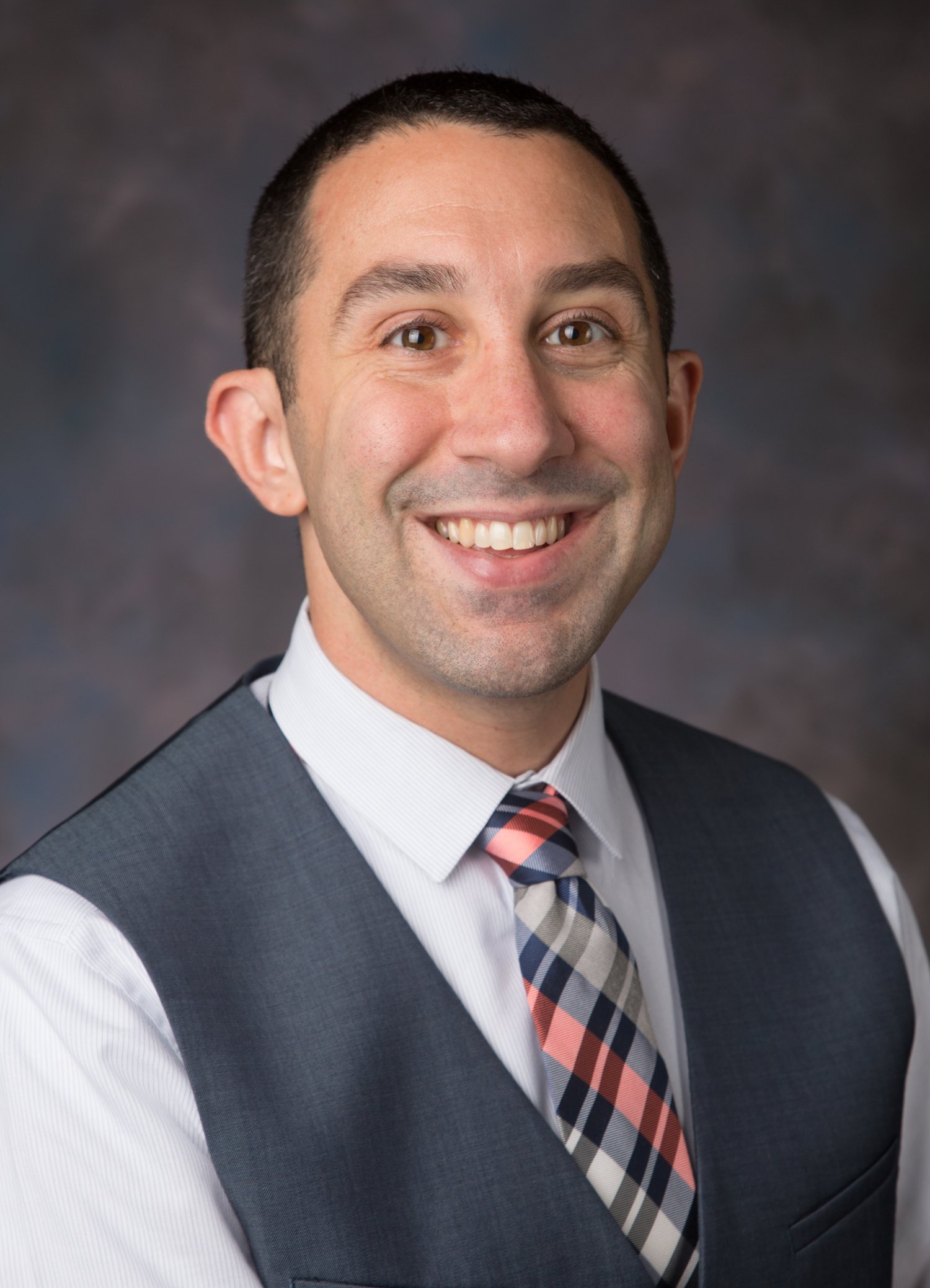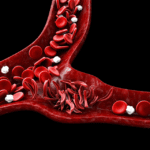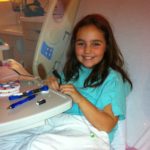Can Smartphone Apps Keep AYA Oncology Patients Plugged in to Their Medication Routines?
Can Smartphone Apps Keep AYA Oncology Patients Plugged in to Their Medication Routines? https://pediatricsnationwide.org/wp-content/uploads/2020/11/AdobeStock_106030267-1024x684.jpg 1024 684 Natalie Wilson Natalie Wilson https://pediatricsnationwide.org/wp-content/uploads/2021/06/Natalieheadshot3-2.png- November 10, 2020
- Natalie Wilson

Studies show that suboptimal medication adherence may be a barrier to increased survival rates among adolescents and young adults with cancer. Anthony Audino, MD, explores the utility of medication adherence apps to meet the unique needs of these patients.
The incidence of cancer among adolescents and young adults (AYA), or those 15-39 years old, has increased steadily over the last 25 years. Nearly 80,000 AYA individuals are diagnosed with cancer every year, and excluding homicide, suicide and unintentional injury, cancer is the leading cause of death among this age group.
Additionally, as overall survival and event-free survival rates have increased for both younger children and older adults with cancer, a startling trend has emerged: AYA oncology patients have not experienced these improved outcomes over time.
Several theories have been offered to explain the “AYA Gap.” As patients grow older, gain independence, move away from family and enter new stages in their lives, medication adherence often falls to the wayside.
“Unlike pediatric patients who probably have their parents administering medications to them, AYAs who are independent have to manage their medications on their own, while also balancing all the other responsibilities that come with being an AYA,” says Anthony Audino, MD, pediatric oncologist and member of the AYA Program at Nationwide Children’s Hospital. “They may not have their parents ‘reminding’ them to make doctors’ appointments or take important medications.”
Unfortunately, when patients don’t adhere to their medication regimens, their treatments can become less effective.
“Several studies have demonstrated that suboptimal adherence to medications can increase risk of relapse, hospitalizations and health care utilization,” says Dr. Audino, who is associate professor of pediatrics at The Ohio State University College of Medicine. “One study even showed that among leukemia patients, less than 95% adherence to oral chemotherapy regimens was associated with a 2.7-fold increase in risk of relapse. The study also showed that adherence was much less in patients older than 12 years compared to those who were younger.”
With awareness of these risks, Dr. Audio and other researchers have begun exploring unique ways to support these patients and intervene. In a recent study, published in the Journal of Adolescent and Young Adult Oncology and led by Dr. Audino, 30 AYA oncology patients actively receiving treatment at Nationwide Children’s Hospital were asked to download a smartphone app, MedActionPlan Pro (MPP), to receive text messages and alerts to encourage medication adherence. This web-based program, which is fully integrated into electronic medical records, allows providers to create, print and share medication lists, treatment plans, taper schedules and education tools.
After the patients used the app for three months, researchers conducted semi-structured, qualitative interviews with them to learn about their app utilization, perceived improved medication adherence and any additional features they thought the application should have.
Results were positive. Every user reported that they experienced increased adherence to their medication regimens, decreased forgetfulness and improved organization. They also shared that text message reminders were the most helpful feature. Many participants felt that using the app encouraged them to form medication taking habits.
Some participants also offered feedback and ideas about additional features they felt would lead to even further improvements in their medication adherence.

“AYAs had unique ideas, suggesting enhancements such as further ability to individualize the app with personalization aspects, calendar views, photographs of specific medications and the ability to integrate their clinic appointments,” says Dr. Audino. “They should be involved in the design and execution of these apps.”
“AYAs know best what will work for them in order to increase medication adherence,” he adds. “As physicians, parents or researchers, we can only speculate.”
Navigating a cancer diagnosis and treatment is difficult, and participants also expressed that they appreciated feeling organized and supported during a challenging time in their lives.
‘‘I really liked that it had all my meds in one place, so I was able to know what I needed to take and when, because it was a ton [of medications]!” says one participant. “No one tells you how many medications you are going to have with cancer. It was super nice.’’
Dr. Audino says the results of this study support the further need to investigate medication adherence apps that fit the unique needs of AYA oncology patients.
“Future research should include utilizing validated medication adherence tools in conjunction with qualitative data to improve medication adherence in AYAs,” says Dr. Audino. “Investigation into which AYA patients are most at risk for poor medication adherence, coupled with which AYA patient group benefits the most from these technologies, is also of utmost importance. Lastly, incorporating AYAs and their thoughts and ideas into development of new apps or strategies to increase adherence is pivotal in making a difference.”
Reference:
Belsky JA, Holmes C, Stanek J, Yeager ND, Audino AN. Evaluating Perspectives of a Smartphone Medication Application in the Adolescent and Young Adult Oncology Population: A Qualitative Study. Journal of Adolescent and Young Adult Oncology. 2020 Sep 22. [Epub ahead of print]
Image credits: Adobe Stock, Nationwide Children’s
About the author
Natalie is a passionate and enthusiastic writer working to highlight the groundbreaking research of the incredible faculty and staff across Nationwide Children's Hospital and the Abigail Wexner Research Institute. Her work at Nationwide Children's marries her past interests and experiences with her passion for helping children thrive and a long-held scientific curiosity that dates back to competing in the Jefferson Lab Science Bowl in middle school. Natalie holds a bachelor’s degree in sociology from Wake Forest University, as well as minors in women's, gender & sexuality studies and interdisciplinary writing. As an undergraduate student, Natalie studied writing and journalism, engaged with anthropological and sociological research with a focus on race and ethnic relations, served as executive editor for the student newspaper, the Old Gold & Black, and gained marketing experience as an intern for a nonprofit entrepreneurial incubator, Winston Starts, as well as by working for Wake Forest University School of Law Office of Communication and Public Relations and its Innocence and Justice Clinic.
-
Natalie Wilsonhttps://pediatricsnationwide.org/author/natalie-wilson/
-
Natalie Wilsonhttps://pediatricsnationwide.org/author/natalie-wilson/
-
Natalie Wilsonhttps://pediatricsnationwide.org/author/natalie-wilson/
-
Natalie Wilsonhttps://pediatricsnationwide.org/author/natalie-wilson/
- Posted In:
- In Brief










